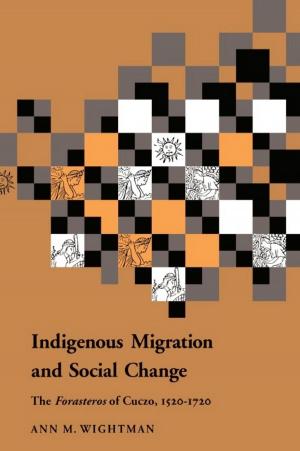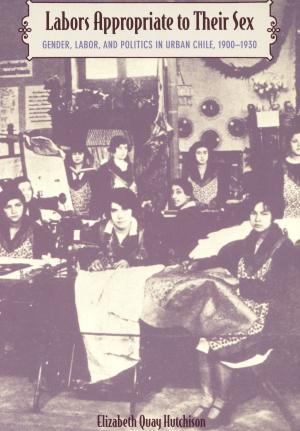In the Aftermath of Genocide
Armenians and Jews in Twentieth-Century France
Nonfiction, Social & Cultural Studies, Social Science, Anthropology| Author: | Maud S. Mandel | ISBN: | 9780822385189 |
| Publisher: | Duke University Press | Publication: | July 4, 2003 |
| Imprint: | Duke University Press Books | Language: | English |
| Author: | Maud S. Mandel |
| ISBN: | 9780822385189 |
| Publisher: | Duke University Press |
| Publication: | July 4, 2003 |
| Imprint: | Duke University Press Books |
| Language: | English |
France is the only Western European nation home to substantial numbers of survivors of the World War I and World War II genocides. In the Aftermath of Genocide offers a unique comparison of the country’s Armenian and Jewish survivor communities. By demonstrating how—in spite of significant differences between these two populations—striking similarities emerge in the ways each responded to genocide, Maud S. Mandel illuminates the impact of the nation-state on ethnic and religious minorities in twentieth-century Europe and provides a valuable theoretical framework for considering issues of transnational identity. Investigating each community’s response to its violent past, Mandel reflects on how shifts in ethnic, religious, and national affiliations were influenced by that group’s recent history. The book examines these issues in the context of France’s long commitment to a politics of integration and homogenization—a politics geared toward the establishment of equal rights and legal status for all citizens, but not toward the accommodation of cultural diversity.
In the Aftermath of Genocide reveals that Armenian and Jewish survivors rarely sought to shed the obvious symbols of their ethnic and religious identities. Mandel shows that following the 1915 genocide and the Holocaust, these communities, if anything, seemed increasingly willing to mobilize in their own self-defense and thereby call attention to their distinctiveness. Most Armenian and Jewish survivors were neither prepared to give up their minority status nor willing to migrate to their national homelands of Armenia and Israel.In the Aftermath of Genocide suggests that the consolidation of the nation-state system in twentieth-century Europe led survivors of genocide to fashion identities for themselves as ethnic minorities despite the dangers implicit in that status.
France is the only Western European nation home to substantial numbers of survivors of the World War I and World War II genocides. In the Aftermath of Genocide offers a unique comparison of the country’s Armenian and Jewish survivor communities. By demonstrating how—in spite of significant differences between these two populations—striking similarities emerge in the ways each responded to genocide, Maud S. Mandel illuminates the impact of the nation-state on ethnic and religious minorities in twentieth-century Europe and provides a valuable theoretical framework for considering issues of transnational identity. Investigating each community’s response to its violent past, Mandel reflects on how shifts in ethnic, religious, and national affiliations were influenced by that group’s recent history. The book examines these issues in the context of France’s long commitment to a politics of integration and homogenization—a politics geared toward the establishment of equal rights and legal status for all citizens, but not toward the accommodation of cultural diversity.
In the Aftermath of Genocide reveals that Armenian and Jewish survivors rarely sought to shed the obvious symbols of their ethnic and religious identities. Mandel shows that following the 1915 genocide and the Holocaust, these communities, if anything, seemed increasingly willing to mobilize in their own self-defense and thereby call attention to their distinctiveness. Most Armenian and Jewish survivors were neither prepared to give up their minority status nor willing to migrate to their national homelands of Armenia and Israel.In the Aftermath of Genocide suggests that the consolidation of the nation-state system in twentieth-century Europe led survivors of genocide to fashion identities for themselves as ethnic minorities despite the dangers implicit in that status.















